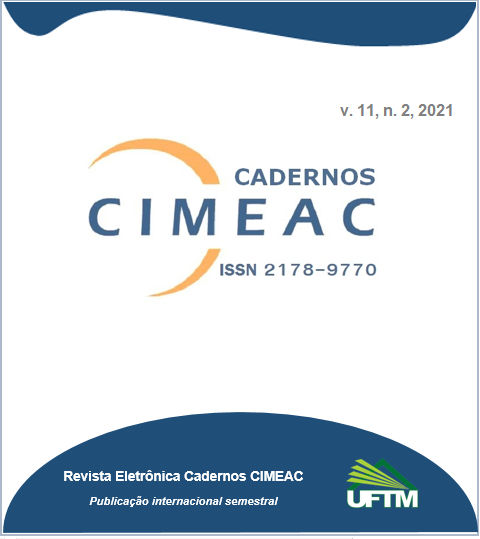Saberes do outro no livro didático: a história dos afro-brasileiros
DOI:
https://doi.org/10.18554/cimeac.v11i2.5846Abstract
In the following work, it is discussed how open to the cultural diversity and to the multiplicity of ways of existing, knowing and being at the world are the History textbooks (8th year of schooling). It will be done through checking what are the principles of afro-brazilian history disseminated in these textbooks (New Critical History, Arariba History Project, History Society and Citizenship). The theoretical framework used is based on official documents (Law n. 10.639/03 and curricular guidelines) and on the literature of multiculturalism and education. The findings indicate that the principles disseminated in the textbooks integrate and consolidate eurocentric constructions because it develops the idea of the black people predominantly as marginalized (poor, enslaved, etc.). It confirms that (1) the authors have not been able to produce multiculturally oriented collections, that (2) the collections are fertile territories of reproduction of a cultural color blindness and its social relations of domination and inequality, and that (3) there is a close connection between authors’ academic background and the multicultural substance of the textbooks.
Downloads
Published
Issue
Section
License
Os autores que publicam nesta revista concordam com os seguintes termos:
(a) Não cobramos dos autores para a publicação neste periódico.
(b) Autores mantém os direitos autorais e concedem à revista o direito de primeira publicação, com o trabalho simultaneamente licenciado sob a Licença Creative Commons que permite o compartilhamento do trabalho com reconhecimento da autoria e publicação inicial nesta revista.
(c) Autores têm permissão e são estimulados a difundir e a distribuir a versão publicada de seu trabalho online (ex.: em repositórios institucionais ou na sua página pessoal) após o processo editorial, já que isso pode aumentar o impacto e a citação do trabalho publicado (Veja O Efeito do Acesso Livre).
* * *
AUTHORS COPYRIGHT AND PUBLISHING RIGHTS
Authors who publish with this journal agree to the following terms:
(a) This journal does not charge authors for publication.
(b) Authors retain copyright and grant the journal right of first publication with the work simultaneously licensed under a Creative Commons Attribution License that allows others to share the work with an acknowledgement of the work's authorship and initial publication in this journal.
(c) For authors whose articles have been accepted: authors are permitted and encouraged to post their work online (e.g., in institutional repositories or on their website) after the publication of the text in Cadernos CIMEAC, as it can lead to productive exchanges as well as earlier and greater citation of published work (See The Effect of Open Access).

 10.18554/cimeac
10.18554/cimeac

